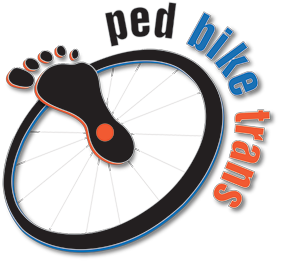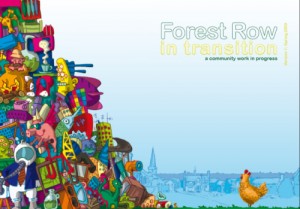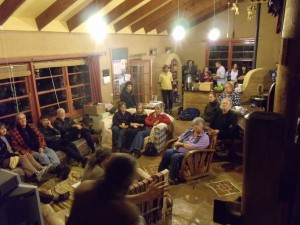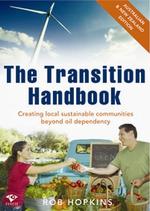The 2009 Community Grants Program builds on the success of ten previous annual programs that have returned over $925,000 to the community. Since 1987 the Scheme has funded 385 community projects around Australia.
Australia’s Open Garden Scheme is a self-funding, not-for-profit organisation that promotes the knowledge and pleasure of gardens and gardening to all Australians.
Each year more than 250,000 people visit around 600 private gardens which open for the Scheme. The entry fees charged fund the Scheme’s operation.
Funds surplus to operating costs are returned to the community in the form of grants for garden-related projects.
Australia’s Open Garden Scheme in association with ABC Radio is proud to offer these grants to community organisations for the creation or improvement of a garden for a public or community outdoor space.
ABC Radio has been a proud supporter of the Scheme since its inception in 1987. From local Saturday morning gardening talkback to ‘Gardening Australia’ on ABC Television, the ABC supports and recognises gardening as one of Australia’s most popular pastimes.
How the Community Benefits
Australia’s Open Garden Scheme is a self-funding, non-profit organisation dedicated to promoting the knowledge and pleasure of gardens and gardening.
By opening Australia’s finest private gardens to the public, the community benefits financially in two very distinct ways: by donations to charity by our garden owners, and by the Scheme’s own Community Grants program.
Donations by garden owners
Since 1987 the Scheme’s garden owners have donated more than $4.3 million to charity. Last season alone, our garden owners donated around $330,000 to charities and local causes. These funds were raised through garden entry fees, refreshment stalls, plants sales and various other activities on open days.
Community Garden Grants
The Scheme is committed to encouraging gardening and improving our environment. One of the ways we achieve this is by funding community-based garden projects. Each year, funds surplus to our operational costs are returned to the community in the form of grants.
Since 1987, community projects around Australia have benefited to the tune of $925,000. This is in addition to funding our own national expansion.
Recipients of funds include Botanic Gardens which play a vital role in encouraging plant diversity and education. We have funded the identification of important plant collections which enhance the community’s knowledge and appreciation of plant diversity.
The Scheme’s commitment to the gardeners of the future is aptly demonstrated by the substantial number of school gardens which have received funding, encouraging tomorrow’s gardeners.
The therapeutic qualities of gardens and plants have also ensured that hospitals and retirement villages have been the focus of a number of grants.
A growing interest in the gardening heritage of Australia is also reflected in grants given for tree surgery, restoration of hard landscaping, undergrounding of utilities and research into historic gardens.
Inspired by the enthusiasm of community groups, the Scheme has provided funds for projects which are enhancing towns and cities across the breadth of Australia. Included among these are a number of gardens celebrating specific plant collections.
In recognition of the challenges of gardening in our climate, the Scheme has also been involved in the construction of a Waterwise Garden, the installation of watering systems in historic gardens and a Fire Safe Garden in a bushfire-prone region.The 2009 Community Grants Program builds on the success of ten previous annual programs that have returned over $925,000 to the community. Since 1987 the Scheme has funded 385 community projects around Australia.
Australia’s Open Garden Scheme is a self-funding, not-for-profit organisation that promotes the knowledge and pleasure of gardens and gardening to all Australians.
Each year more than 250,000 people visit around 600 private gardens which open for the Scheme. The entry fees charged fund the Scheme’s operation.
Funds surplus to operating costs are returned to the community in the form of grants for garden-related projects.
Australia’s Open Garden Scheme in association with ABC Radio is proud to offer these grants to community organisations for the creation or improvement of a garden for a public or community outdoor space.
ABC Radio has been a proud supporter of the Scheme since its inception in 1987. From local Saturday morning gardening talkback to ‘Gardening Australia’ on ABC Television, the ABC supports and recognises gardening as one of Australia’s most popular pastimes.
How the Community Benefits
Australia’s Open Garden Scheme is a self-funding, non-profit organisation dedicated to promoting the knowledge and pleasure of gardens and gardening.
By opening Australia’s finest private gardens to the public, the community benefits financially in two very distinct ways: by donations to charity by our garden owners, and by the Scheme’s own Community Grants program.
Donations by garden owners
Since 1987 the Scheme’s garden owners have donated more than $4.3 million to charity. Last season alone, our garden owners donated around $330,000 to charities and local causes. These funds were raised through garden entry fees, refreshment stalls, plants sales and various other activities on open days.
Community Garden Grants
The Scheme is committed to encouraging gardening and improving our environment. One of the ways we achieve this is by funding community-based garden projects. Each year, funds surplus to our operational costs are returned to the community in the form of grants.
Since 1987, community projects around Australia have benefited to the tune of $925,000. This is in addition to funding our own national expansion.
Recipients of funds include Botanic Gardens which play a vital role in encouraging plant diversity and education. We have funded the identification of important plant collections which enhance the community’s knowledge and appreciation of plant diversity.
The Scheme’s commitment to the gardeners of the future is aptly demonstrated by the substantial number of school gardens which have received funding, encouraging tomorrow’s gardeners.
The therapeutic qualities of gardens and plants have also ensured that hospitals and retirement villages have been the focus of a number of grants.
A growing interest in the gardening heritage of Australia is also reflected in grants given for tree surgery, restoration of hard landscaping, undergrounding of utilities and research into historic gardens.
Inspired by the enthusiasm of community groups, the Scheme has provided funds for projects which are enhancing towns and cities across the breadth of Australia. Included among these are a number of gardens celebrating specific plant collections.
In recognition of the challenges of gardening in our climate, the Scheme has also been involved in the construction of a Waterwise Garden, the installation of watering systems in historic gardens and a Fire Safe Garden in a bushfire-prone region.























 Two years after the group was formed,
Two years after the group was formed, 



